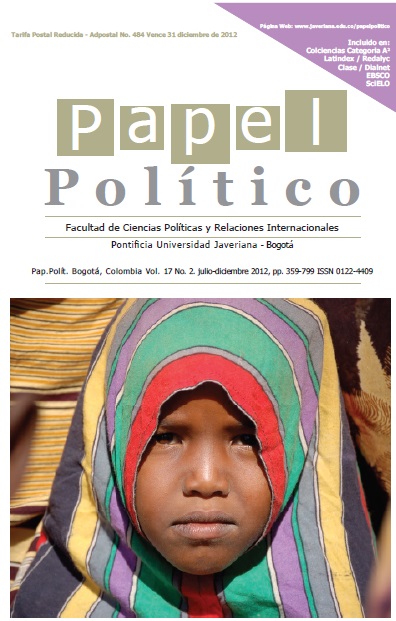Abstract
The so-called globalization is a social, economic, cultural and political practice produced from different sources. This article indicates the importance vertebral in the generation of this new practice and representation of the human (in the past but also in the present) spacetime understanding and structures and capitalist dynamics of production and social relationship. These processes are have been configuring, largely by the structuring role of communication in the dynamic and changing human interactions through innovations and technological inserts and in similar proportion, by the expansion of the capitalist mode of production globally along, at least its five centuries of existence. Since then this correlation between the separation spacetime, understanding spacetime and capitalism as matrices of globalization lead to an interpretation of the same other than the proverbial interconnections and interdependencies cross-border produced just as globalism of the markets or the standardisation of certain practices worldwide as ISO standards, approvals of titles or functionalconnections between Los. This glimpse into globalization throws hand the challenge of complexity which assumes that a world globalized not only is a context of location of actors, strategies, identities and knowledge but also a
frame of reference for action on globalization (context) and globalization (frame of reference).
This journal is registered under a Creative Commons Attribution 4.0 International Public License. Thus, this work may be reproduced, distributed, and publicly shared in digital format, as long as the names of the authors and Pontificia Universidad Javeriana are acknowledged. Others are allowed to quote, adapt, transform, auto-archive, republish, and create based on this material, for any purpose (even commercial ones), provided the authorship is duly acknowledged, a link to the original work is provided, and it is specified if changes have been made. Pontificia Universidad Javeriana does not hold the rights of published works and the authors are solely responsible for the contents of their works; they keep the moral, intellectual, privacy, and publicity rights.
Approving the intervention of the work (review, copy-editing, translation, layout) and the following outreach, are granted through an use license and not through an assignment of rights. This means the journal and Pontificia Universidad Javeriana cannot be held responsible for any ethical malpractice by the authors. As a consequence of the protection granted by the use license, the journal is not required to publish recantations or modify information already published, unless the errata stems from the editorial management process. Publishing contents in this journal does not generate royalties for contributors.


